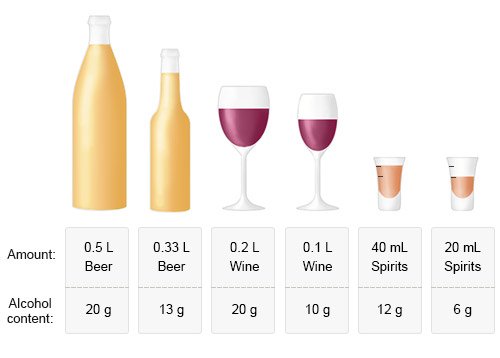Introduction

Alcohol features in a lot of people’s daily lives, whether as a glass of wine with a meal, a beer after work or while watching TV, or a glass of celebratory champagne with friends. So it's not surprising that around 20% of adults in Germany drink more alcohol than recommended. This is true regardless of age, education or gender.
Drinking alcohol in moderation from time to time is not a cause for concern, but bigger amounts can cause problems. That is why a lot of people resolve to change their drinking habits, perhaps because:
- they have realized that alcohol is not good for them,
- they are using medication that can't be taken together with alcohol,
- they have realized that they drink alcohol to relieve stress or forget about their problems,
- they did something under the influence of alcohol that they then regretted or that was embarrassing,
- alcohol has caused disputes in their family, with friends, or at work, or
- they have developed health problems, for example with the pancreas, stomach, liver, heart or joints.
Changing your drinking habits is never easy. But there are a lot of helpful strategies and places that offer support if you're trying to cut down on drinking. Free and anonymous advice is available in person, by telephone, or on the internet.

